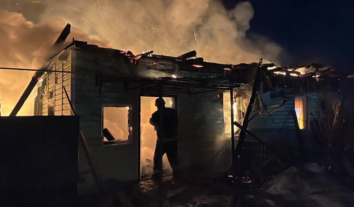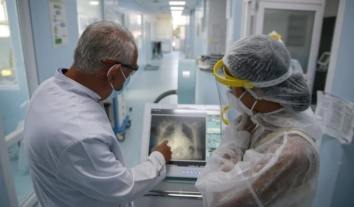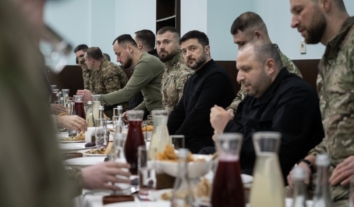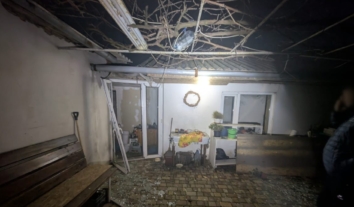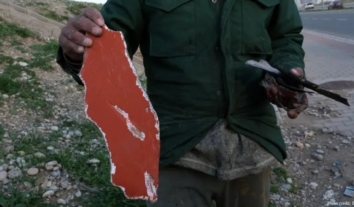Crimean Political Prisoner Speaks about his Detention
Ukrainian activist Yuriy Ilchenko escaped from house arrest in occupied Crimea after 11 months of detention in Sevastopol prison.
His story has been described in detail by Crimea SOS activists Alim Aliyev and Sofia Senik in Ukrayinska Pravda.
The Lviv office of Crimea SOS is the first place that Ilchenko went after his escape.
Ilchenko was arrested on July 2, 2015 on charges of inciting ethnic hatred and extremism.
He described, in detail, the torture and abuse that he experienced during his detention from both prison guards and other prisoners.
“I was beaten mostly in the kidneys, ribs, head, and jaw in order to avoid leaving bruises. This was mainly done by inmates, who had been promised a shorter period of imprisonment or parole, as they themselves admitted when in a state of alcoholic intoxication.”
“Of all the inmates, I was treated the worst. They told me constantly that I’m nobody and nothing. They tried to force me to do the dirty work, cleaning, and when I refused, they beat me. The way I was addressed was a bit nicer: “animal”, “Bandera”(which I did not consider an insult, because for me, Stepan Bandera is a national hero, but they treated the word derisively), “khokhol.” Both the prison staff and inmates insulted me,” he added.
Ilchenko also said that, during all of his 11 months in pre-trial detention, he had only one meeting with his parents. Prison workers prevented communication with his private lawyers. His lawyer could wait from morning to evening and still not get permission to meet with him.
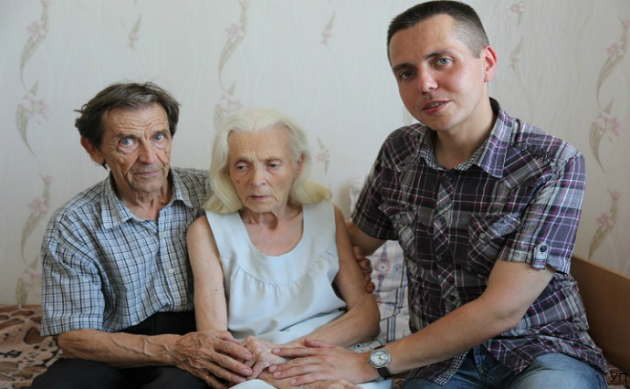
“During interrogations, FSB officers would go on for 40-50 minutes how they would torture me if I did not sign everything required from me. At least two members of the security forces were always present. They threatened me with rape and various sexual perversions.”
The investigators promised him up to 10 or even 20 years in prison.
“On June 2, 2016, my appeal was considered (for yet another arrest) in the Russian-occupied ‘Sevastopol City Court’ via Skype, which the judge granted. The same day, they took me to my home, where they installed cameras and an observation post, and attached a tracking bracelet to my leg.”
He added that Russian police told him that he could be re-arrested at any time.
“At half-past two in the morning on June 11th, I left the apartment, wearing my father’s jacket with my mother’s cane, because my mother limps. When I passed the surveillance camera, I threw off the jacket, tossed the cane into the bushes, and cut the bracelet with knives that I brought from the house. I then hitchhiked to Bakhchisaray. I called a taxi from a different phone number and it took me to to the bus station in Simferopol. I took another car to Armyansk.”
At the administrative border, there was a wall of almost impenetrable thickets. He knew from television about the mines and trip wires which were on both sides of the border, but decided to risk it because he did not want to go back to a Russian prison. He was able to climb the wall, but was nearly arrested by a Russian soldier.
“But, he turned out to be the last Russian soldier from the border and was already standing after the checkpoint, somewhere at a distance of several meters from the first of our soldiers. He spoke to me in Russian and said something about a passport. I got scared and ran towards our border guard.”
Yuriy managed to get to the Ukrainian checkpoint, where he showed his passport and the documents that showed his criminal case and stay in jail. He then went to Lviv, where he received help with money, food, shelter, medical rehabilitation, and preparation of his necessary documents.
A few days ago, Crimea SOS helped his parents leave Crimea.
His persecution began after he published an article on his website criticizing the Russian occupation of Crimea.
He was charged with public calls for extremist activities and inciting ethnic hatred or enmity.

